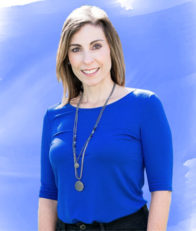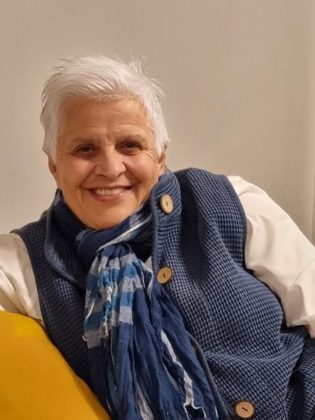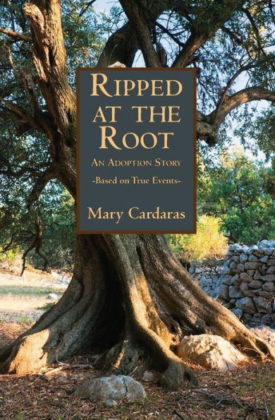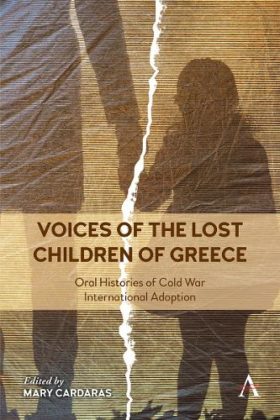Longing for Home
MNEMOSYNI’S MUSINGS…
Longing for Home
Greek Adoptees Share Their Heartbreaking Stories in Voices of the Lost Children of Greece

Maria A. Karamitsos
“Who am I?” “Where do I come from?” Most of us know the answers to these questions. I say most, because some truly don’t know. It’s been said that you must know where you come from to know where you’re going. But for some, those answers are out of reach. And it keeps them from finding their place in the world—and determining where they’re going. Such is the plight of many adoptees, especially adoptees from Greece during the 1950s and 1960s.
Adoption can be a beautiful, selfless act—when done for the right reasons. But thousands of children were adopted from Greece in the aftermath of World War II and the Greek Civil War, and many of them were stolen from their families or taken under suspicious circumstances. Many others were separated from siblings and, in some cases, twins. Families were told their babies died. But they were very much alive, and sent to unsuspecting families in the U.S. Some were adopted into loving homes, while others were abused. This dark time in our history cannot continue to be swept under the rug. Because many are struggling, they need—and deserve—to know where they come from. Without a true sense of identity, they feel like they’re not grounded; they feel like their roots were cut. And they’re longing to reconnect. The sense of nostos—a longing for home—won’t let their questions die. And there are parents and families on the other end who’ve spent their lives, in some cases decades, wondering about their lost children. Time is of the essence, because many of the parents are now elderly or have already died. The adoptees are aging, too, and it is past time for them to reconnect those roots, to find home, and to finally learn who they are and where they come from.
Mary Cardaras, herself an adoptee, has compiled the gut-wrenching stories of a group of Greek adoptees, including her own in Voices of the Lost Children of Greece: Oral Histories of Cold War International Adoption (Anthem Press, 2023). Some of the adoptees have been able to find their answers, however, others still search. Their stories are strikingly similar: all longing to reconnect with their roots, for a sense of belonging—past, present, and future. To know where they fit in the puzzle. Cardaras has also become a fervent activist for adoptees. She shared her story and why it’s important to give voice to the adoptees.
Mary’s story

Dr. Mary Cardaras
Born in a maternity hospital in Athens, Cardaras stayed with her birth mother for nine days. She’s not sure where they stayed, but at that point, her mother realized she couldn’t raise the baby and took her to an orphanage. The baby became #44488. Cardaras’ adoptive parents couldn’t conceive, and her adoptive grandparents sought a child for them. They first saw Cardaras at the orphanage and within 12 months she would journey to the States to her new family.
“From the orphanage, I was sent to a foster home organized by PIKPA, the Patriotic Institution for Social Wellness and Awareness; then a private foster home, where I stayed until my new grandparents and I boarded a ship to the U.S.,” she explained.
Growing up in a loving, Greek-American family, she always knew she was adopted. Her family told her “a beautiful, more romantic story” about her adoption, which she later learned was not entirely true. They didn’t want her to bear the shame or stigma of her origins.
“They didn’t want anyone to know that I was the product of an unwed mother. My grandparents were the only ones who had any contact with the orphanage. In fact, they met my birth mother. They fabricated some nice stories one of which was about the orphanage I came from. I wasn’t at the nicer Mitera in the outskirts of Athens. I was in the dank, public orphanage in the center of the city. I never wanted to hurt my adoptive parents or seem ungrateful, so when I was younger, I’d sneak to look at my papers.”
When Cardaras was 17, she traveled to Greece with her grandparents.
“I felt like I belonged there. It wasn’t foreign. It was home. It was my country. Other adoptees have expressed that same sentiment. While there, I searched the face of every female face I saw, wondering if she’s looking for her baby.”
Sensitive to the feelings of her adoptive parents, it wasn’t until Cardaras was in her thirties that she began a “quiet search” through a social service agency in Athens. It took ten years to get any information.
“They told me they’d put me in touch with my birth mother, but we both needed to go into therapy first. She refused and likely didn’t want to re-live the trauma of her pregnancy, my birth, giving me away. She didn’t want to re-experience her shame. Then I dropped it for 21 years and tried to forget about it.”
But she could not forget. Then her adoptive parents passed away.
“It’s horrible losing your parents. Bereft, I felt untethered, alone, like I’d been left again. I knew it was time to reconnect in a deeper way to my Greek identity.”
Cardaras got involved at church and enrolled in Greek school. There she met a woman who shared the story of Dena Poulias, who’d been stolen from her parents in Greece and adopted in the U.S.
“Something stirred in me. Heartbroken, I called Dena and asked if I could write her story. I told it for her because she couldn’t find the words to tell it herself.”
Uncovering truths
For one year, Cardaras interviewed Poulias and her family. During her research, she discovered a book by Gonda Van Steen, entitled Adoption, Memory, and Cold War Greece: Kid Pro Quo? (University of Michigan Press, 2019).
“I read about communists, stolen babies, doctors, lawyers—a veritable Greek baby trade. I called Gonda and asked her, ‘Am I one of these kids?’ She said yes. She searched my adoption number in her vast database, and that’s how I learned about this time in history. I couldn’t stop thinking about it. I had to write about it. There are so many of us. We’re the first group of kids in history to be exported from our country. The Koreans and Chinese began doing this later. People rarely spoke of it, until Gonda’s book, and then I wrote Ripped. Now everyone’s talking. These people are lost. They want a connection to their biological kin.”

Ripped at the Root
Ripped at the Root: An Adoption Story (Spuyten Duyvil, 2021) details Dena’s adoption story and her quest to find her birth family.
There’s such a stigma surrounding these adoptions, that Cardaras faced many hurdles in her search.
“The Greek government expresses sympathy and sadness but is reluctant to open the files. They say they don’t understand why we have to dredge up the past. I can’t understand that. Some people have gained access to their files, but it’s a battle with bureaucracy. It takes time and money. Many adoptees don’t speak Greek, which presents a greater challenge. The Greeks made mistakes in history. It’s best to confront them. The Irish have opened all their adoption records. Greece needs to do the same.”
Cardaras met with a government rep who had held her file but wouldn’t let her see it.
“She told me there was nothing of interest.”
Ultimately, she located her mother and penned a letter, but it was too late. She died in 2020. Cardaras has met some of her biological family and her mother’s caretaker.
“She gave me my mother’s coat. I could smell her. It was a very emotional moment. Unfortunately, we did reunite, but at her grave. I’ve been told I look like my mother, walk and talk like her. Our voices sound the same. I’ve never been like anyone else. I’m still searching for my biological father. I have his name and he may be still alive.”
Giving voice to adoptees

Voices of the Lost Children of Greece
Some adoptees who shared their stories in Voices of the Lost Children of Greece have found their answers, while others still search. Cardaras gives these brave individuals the space and the grace to share their struggles, their nostos. This important work must be spread far and wide. Their poignant stories reveal this tragic event in our history, and will make you further appreciate your own family, your home, and your story. For countless adoptees, someone cut those roots, not realizing they would regenerate, and stretch across those miles, needing to connect. And they must. The feedback has been incredible.
“People tell me they never knew about this. Other adoptees are now sharing their stories. I just want justice for the adoptees. I hope this book continues to bring more attention to that time in history, to our stories and the importance of knowing and claiming our identities.”
Cardaras has worked in academia, authored books, and produced documentaries—all preparing her for this journey. She’s the Founder and Director of the new Demos Center at Deree-The American College of Greece in Agia Paraskevi, a suburb of Athens.
“And I’ll continue to work with Gonda—I’m so grateful to her—to be a voice for adoptees, get the files open, and restore their Greek citizenship. We’re all longing for home.”
—
Other Greek adoption stories to check out:
Twentieth Century Janissary: An Orphan’s Search for Freedom (Xlibris, 2011) by Dionysios C. Dionou
Beyond the Third Door (BookBaby, 2019) by Maria Heckinger
Lost Child of Greece: One Orphan’s Incredible Journey Home (Menonite Press, 2021) by Amalia Gouvitsas Balch











0 comments